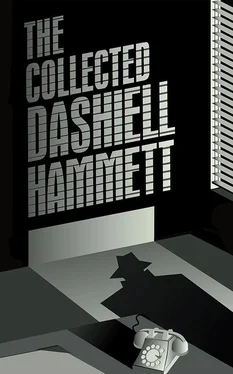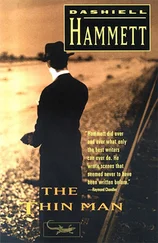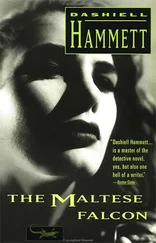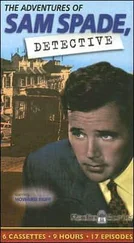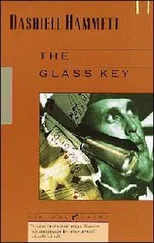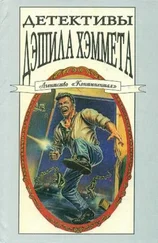He hadn’t many clothes on when I paddled out to the yawl to get acquainted, and what he had were too small for him. His shirt was split in a dozen places and the sleeves were gone. His pants-legs were torn off at the knees. He looked like a hair-mat-tress coming apart — only there was nothing limp or loose about the body inside of the hair. He was as agile as an acrobat. This was the first time I had seen him, although I recognized him on sight from what I had heard in Manila the year before. He bore a sweet reputation.
“Hello, Levison,” I greeted him as I came alongside. “Welcome to our little paradise.”
He scowled down at me, from hat to shoes and back, and then nodded his immense head.
“You are—”
“I’m not,” I denied, climbing over the side. “I never heard of the fellow, and I’m innocent of whatever he did. My name is Peters and I’m not even distantly related to any other Peters.”
He laughed and produced a bottle of gin.
The village was a double handful of thatched huts set upon piles where the water could wash under them when the tide was in, back in a little cove sheltered by a promontory that pointed towards Celebes. Levison built his house — a large one with three rooms — out near the tip of this point, beside the ruins of the old Spanish block-house. I spent a lot of time out there with him. He was a hard man to get along with, a thoroughly disagreeable companion, but he had gin — real gin and plenty of it — and I was tired of nipa and samshu. He thought I wasn’t afraid of him, and that error made it easier for me to handle him.
There was something queer about this Levison. He was as strong as three men and a vicious brute all the way through, but not with the honest brutality of a strong man. He was like a mean kid who, after being tormented by larger boss, suddenly finds himself among smaller ones. It used to puzzle me. For instance, old Muda stumbled against him once on the path into the jungle. You or I would simply have pushed the clumsy old beggar out of the way, or perhaps, if we happened to be carrying a grouch at the time, have knocked him out of the way. Levison picked him up and did something to his legs. Muda had to be carried back to his hut, and he never succeeded in walking after that.
The Moros called Levison the Hairy One (Ber-Bulu), and, because he was big and strong and tough, they were afraid of him and admired him tremendously.
It was less than a week after his arrival when he brought Dinihari home with him. I was in his house when they came in.
“Get out, Peters,” he said. “ This is my dam’ honeymoon.”
I looked at the girl. She was all dimples and crinkled nose — tickled silly.
“Go easy,” I advised the hairy man. “She belongs to Jeffol, and he’s a tough lad.”
“I know,” he sneered through his beard. “I’ve heard all about him. The hell with him!”
“You’re the doctor. Give me a bottle of gin to drink to you with and I’ll run along.”
I got the gin.
I was with Levison and the girl when Jeffol came back from Bangao. I was sprawled on a divan. On the other side of the room the hairy man was tilted back in a chair, talking. Dinihari sat on the floor at his feet, twisted round to look up into his face with adoring eyes. She was a happy brown girl. Why not? Didn’t she have the strongest man on the island — the strongest man in the whole archipelago? And in addition to his strength, wasn’t he as hairy as a wanderoo, in a land where men hadn’t much hair on face and body?
Then the door whipped open and Jeffol came in. His eyes were red over black. He wasn’t at home in Christianity yet, so he cursed Levison with Mohammedan curses. They are good enough up to a certain point, but the climax — usually pig — falls a bit flat on western ears. Jeffol did well. But he would have done better if he had come in with his knives in his hands instead of in his twisted sarong.
The hairy man’s chair came down square on its legs and he got across the room — sooner than you would think. Jeffol managed to loosen a kris and ripped one of Levison’s arms from elbow to wrist. Then the Moro was through. Levison was too big, too strong, for him — swept him up, cuffed weapons out of hand and sarong, took him by arm and thigh and chucked him out of the door.
Dinihari? Her former lord’s body hadn’t thudded on the ground below — a nasty drop with the tide out — before she was bending over Levison’s hairy arm, kissing the bleeding slit.
Jeffol was laid up for a week with a twisted shoulder and bruised back. I dropped in to see him once, but he wasn’t very cordial. He seemed to think I should have done something. His mother — old toothless Ca’bi — chased me out as soon as she saw me, so my visit didn’t last long. She was a proper old witch.
The village buzzed for a day or two, but nothing happened. If Jeffol hadn’t gone Christian there might have been trouble; but most of the Moros held his desertion of the faith against him, and looked on the loss of Dinihari as just punishment. Those who were still Christians were too tame a lot to help Jeffol. His brother the datto washed his hands of the affair, which was just as well, since he couldn’t have done anything anyway. He wasn’t any too fond of Jeffol — had always been a bit envious of him — and he decided that in giving up the girl at the missionary’s request, Jeffol had surrendered ownership, and that she could stay with Levison if she wished. Apparently she did so wish.
Langworthy went to see Levison. I heard of it a few minutes later and paddled like mad out to the house. If the missionary was going to be smeared up I wanted to see it. I didn’t like the man. But I was too late. He came out just as I got there, and he limped a little. I never found out what happened. I asked Levison, but if he had done all the things he told me the missionary wouldn’t have left standing up. The house wasn’t upset, and Levison didn’t have any marks that showed through his hair, so it couldn’t have been much of a row.
Jeffol’s faith in Christianity as a substitute for an anting-anting must have been weakened by this new misfortune, but Langworthy succeeded in holding him, though he had to work night and day to do it. They were together all of the time — Langworthy usually talking, Jeffol sulking.
“Jeffol’s up and about,” I told Levison one day. ‘‘Better watch your step. He’s shifty, and he’s got good pirate blood in him.”
“Pirate blood be damned!” said Levison. “He’s a nigger and I can handle a dozen of him.”
I let it go at that.
Those were good days in the house out on the point. The girl was a brown lump of happiness. She worshipped her big hair-matted beast of a man, made a god of him. She’d look at him for hour after hour with black eyes that had hallelujahs in them. If he was asleep when I went out there, she’d use the word beradu when she told me so — a word supposed to be sacred to the sleep of royalty.
Levison, swept up in this adoration that was larger than he, became almost mellow for days at a time; and even when he relapsed into normal viciousness now and then he was no crueler to her than a Moro would have been. And there were times when lie became almost what she thought of him. I remember one night: We were all three fairly drunk — Levison and I on gin, the girl, drunker than either of us, on love. She had reached up and buried her brown fists in his beard, a trick she was fond of.
“Hold on!” he cried, kicking his chair away and standing up.
He reared up his head, lifting her from the floor, and spun round, whirling her through the air like a kid swinging on a May-pole. Silly, maybe. But in the yellow lamplight, his beaked nose and laughing red mouth above the black beard to which her fists clung, her smooth brown body slanting through the air in a ripple of gay waist and sarong, there was a wild magnificence to them. He was a real giant that moment.
Читать дальше
